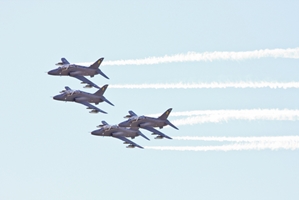Women have made considerable progress in the military in recent years. The Army has opened up thousands of new jobs and combat positions to female troops, and earlier this week Lt. Gen. Michelle Johnson added an accomplishment to the list. Johnson became the first woman to take command of the U.S. Air Force Academy in the institution's nearly 60 year history, Reuters reports.
A deserving candidate
Johnson is certainly well-qualified to take the position. She graduated from the Air Force Academy in 1981 and went on to serve overseas as NATO's deputy chief of staff of operations and intelligence of the Supreme Headquarters of Allied Powers in Europe. While in this role, she was one of the few female leaders in NATO, which will likely have prepared her for one of the top positions in the military. She takes over from former superintendent Gen. Michael Gould, and knows the culture has changed considerably since she was last at the academy.
"I'm going to do things differently than Gen. Gould," she told The Colorado Springs Business Journal. "We're different humans. But first, I'm going to listen and learn. I realize that this is not 1977 [when she entered the Academy] or 1981 [when she graduated]. Even my teaching time here is dated. I have a lot of listening and learning so we can go forward together."
The latest milestone
Although Johnson is making headlines now, she is one of several women to achieve new levels of success in the military during recent months and years. In fact, less than one month ago, Spc. Jennie Dushane, a member of the North Dakota National Guard, became the first female soldiers to earn the Squad Designated Marksman, according to The Associated Press.
The accomplishments of Johnson and Dushane underscore the growing role that women play in the military. Earlier this summer, Pentagon officials spokes to lawmakers about the timeline for opening up more combat roles to women. The Department of Defense says the transition should take place no later than 2016. Still, legislators have raised some concerns about what impact this could have. Specifically, they have questions about whether physical standard will be changed and also about what effect the move could have on morale, especially for Special Operations Forces, The Christian Science Monitor reported.

